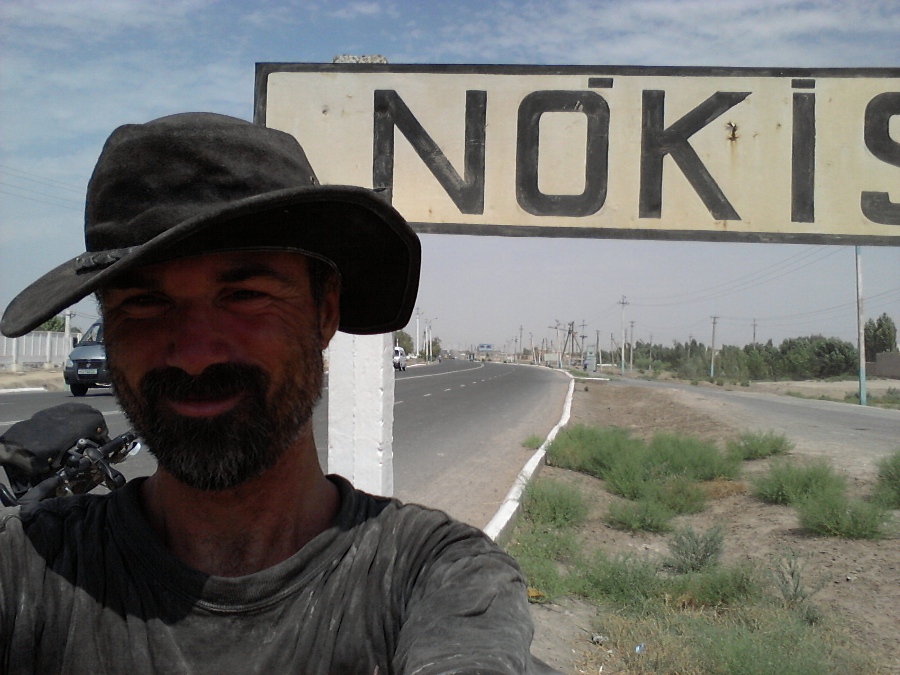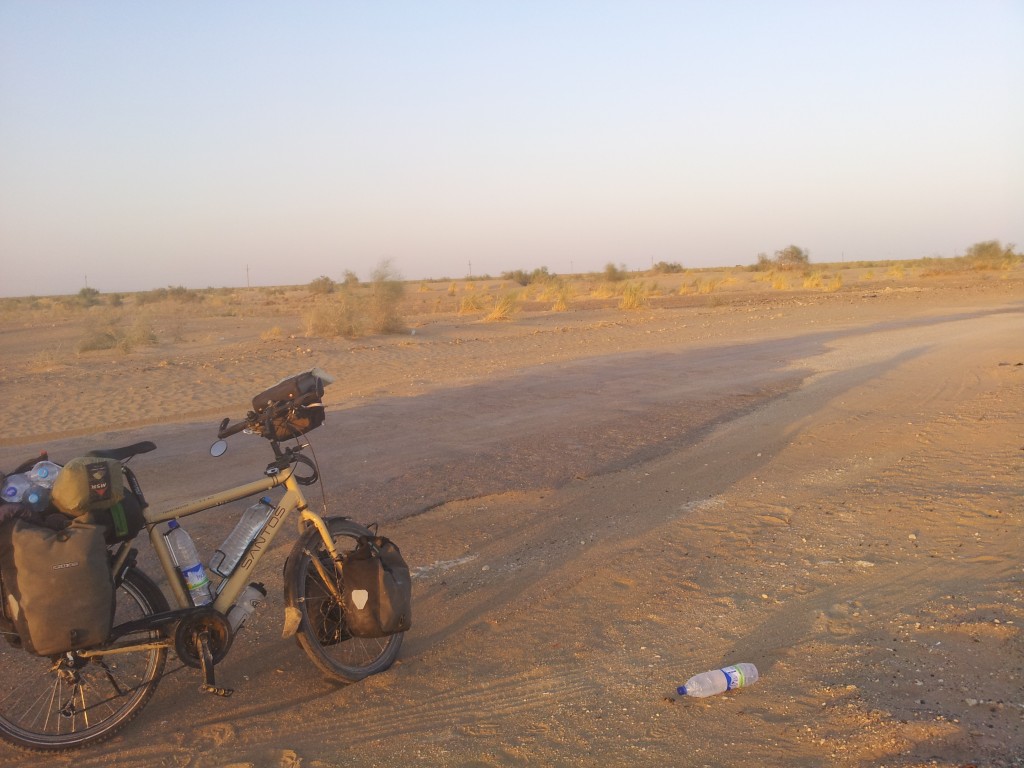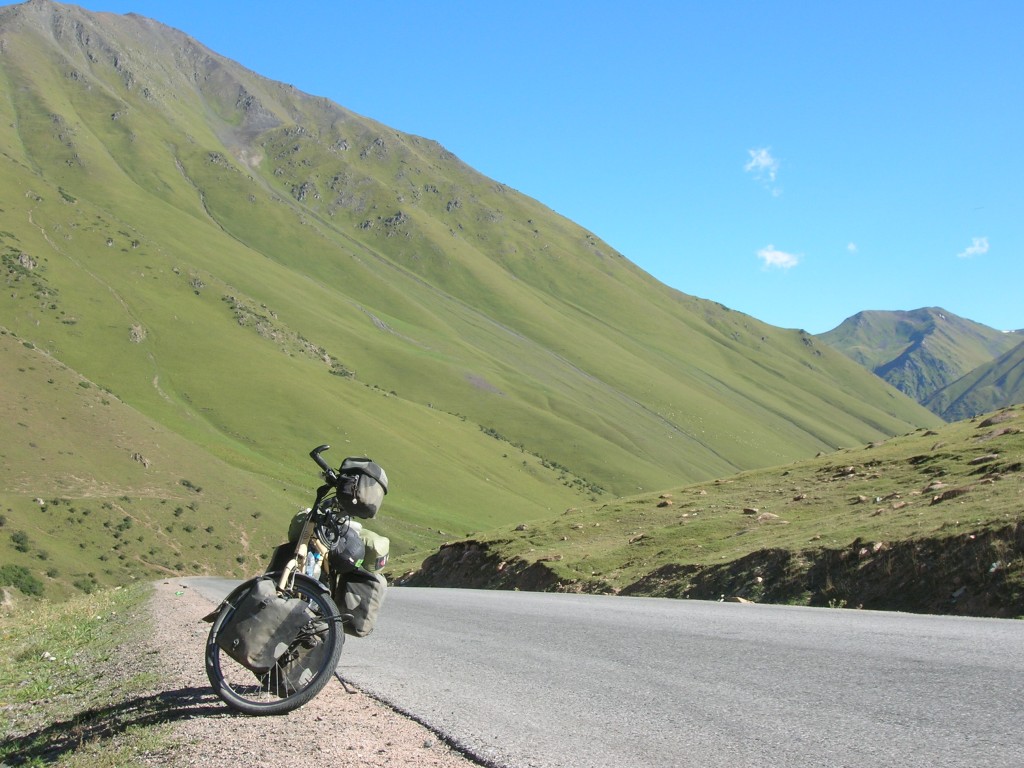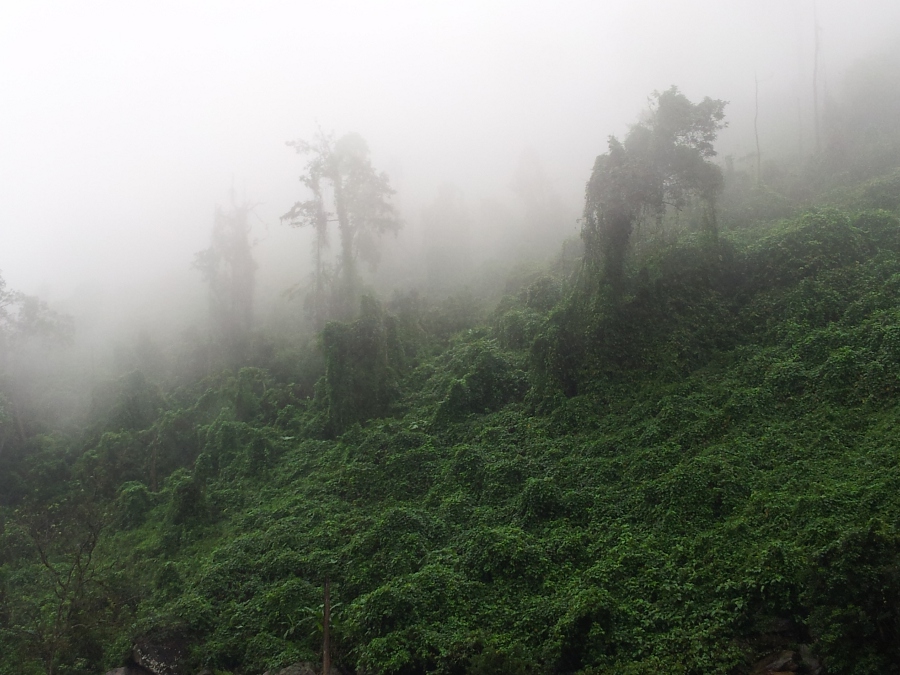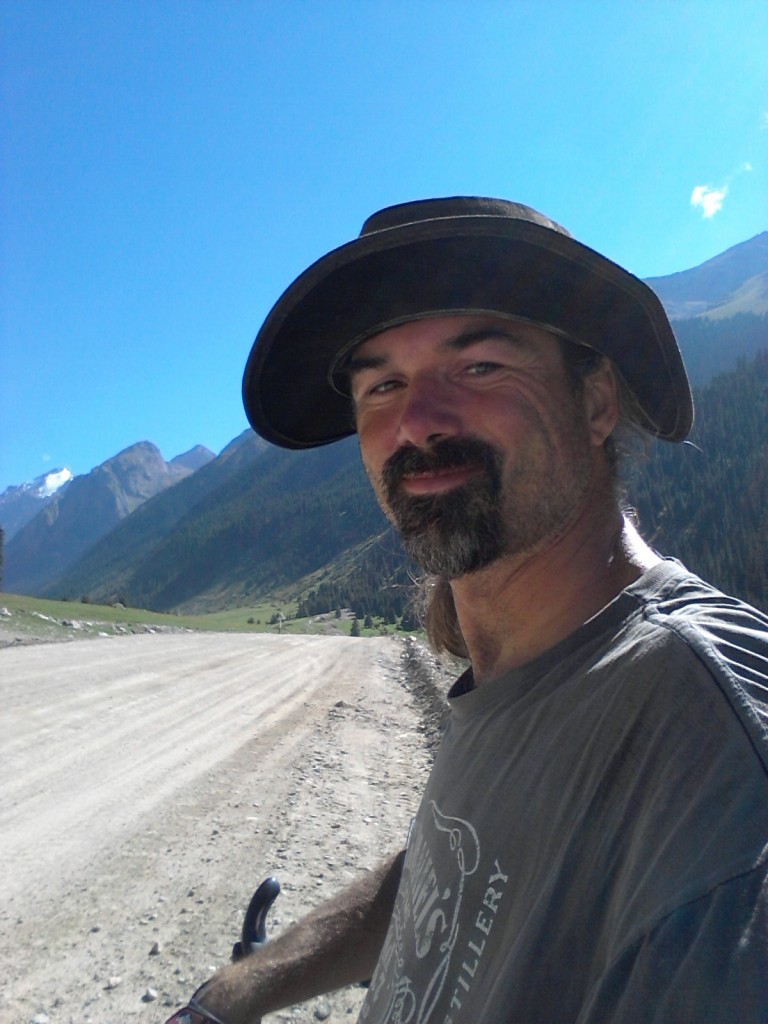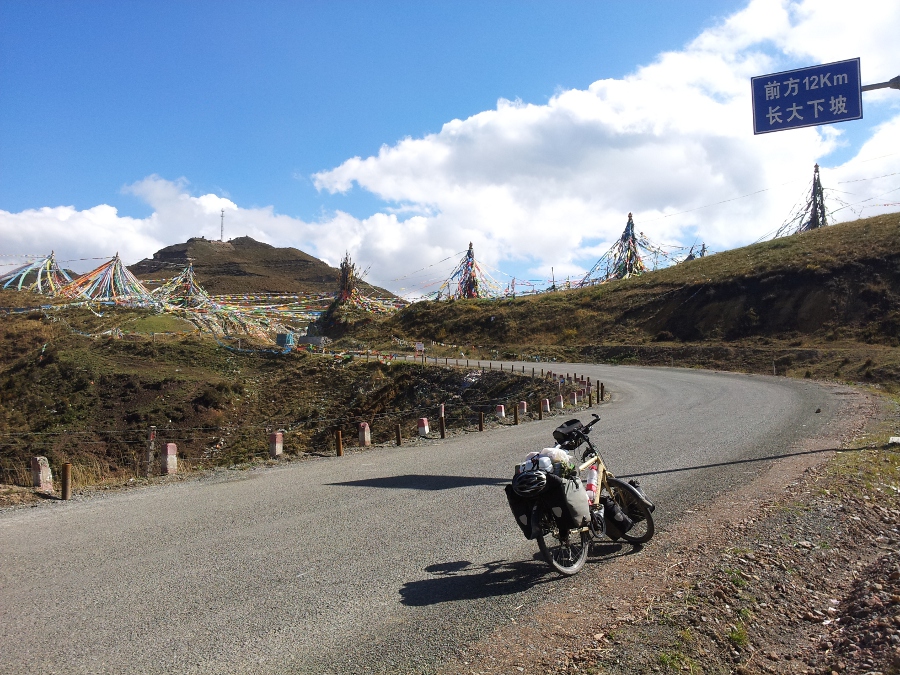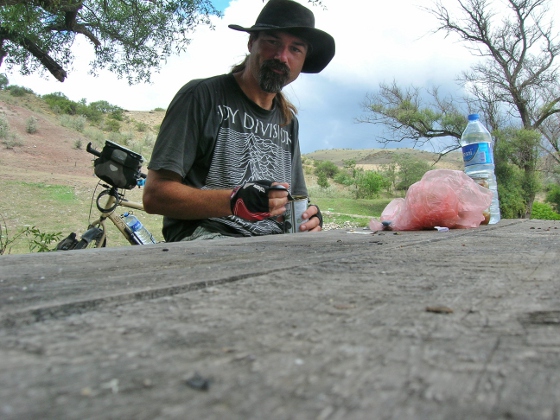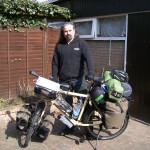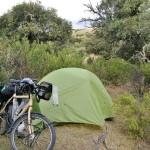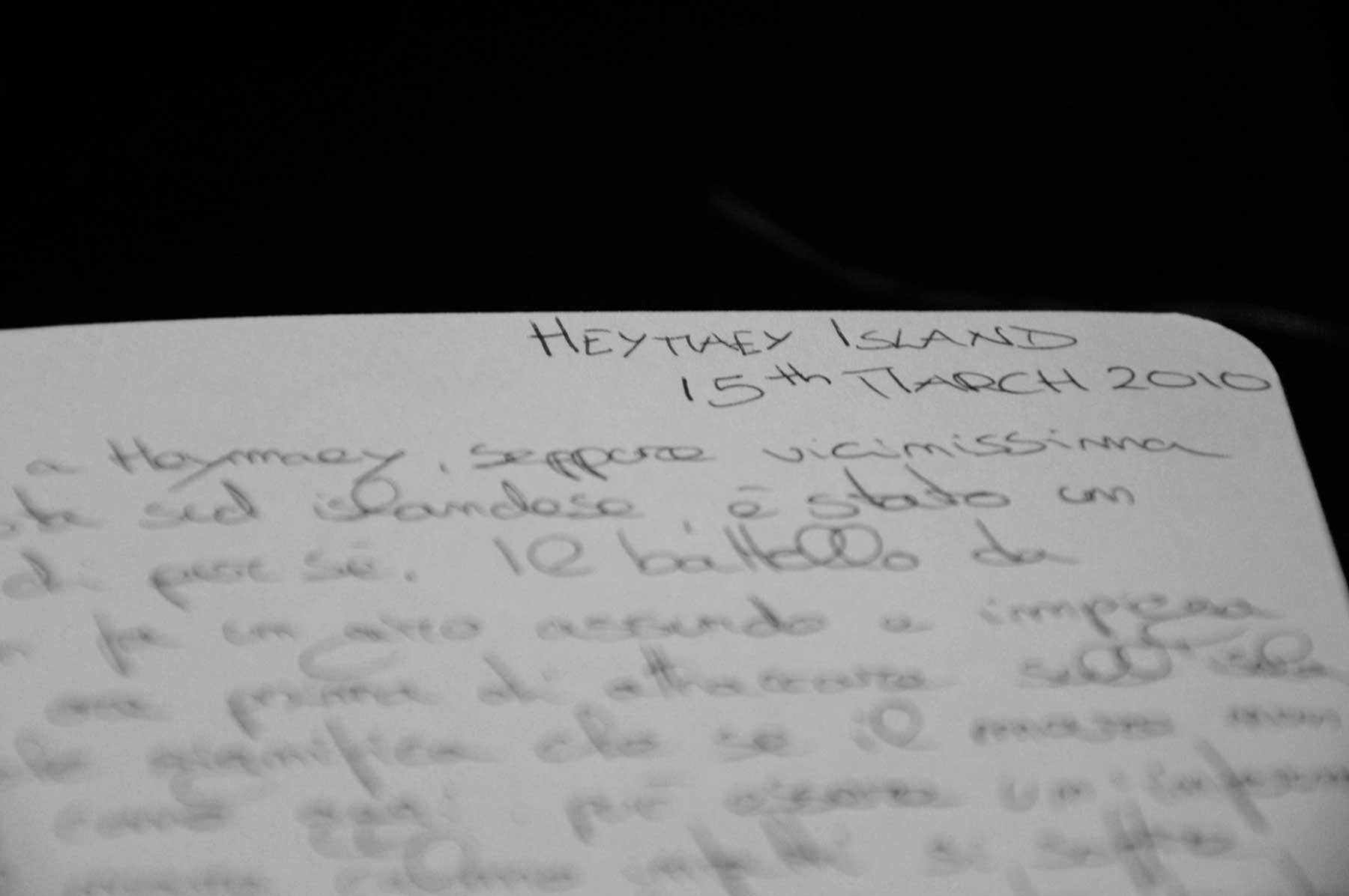One year to bike from Holland to Bali alone. A lifetime adventure that many can only dream about while you made it real. Traveling alone is always a way to become richer and stronger. How did this adventure change you?
Change is a thing that interested me during the trip. For some reason I welcomed changes, even though I was okay with the way I was, and if I would change I surely hoped for positive changes. First there were the physical changes. My muscles grew, I got a tan and I lost weight. This all sounds positive but losing too much weight can become a problem. Life on a bike hardly allowed me to gain some extra weight, or energy, to endure difficult conditions that awaited me. Second are the mental changes. This can be immediate changes, such as the feeling that you’re more alive during physical outdoor exercise, but also changes that emerge in the long term. One such things I noticed was an improved faith in my enterprise and in my abilities. I learned to improvise, for example to pitch my tent after breaking a tent pole, and to fix all kind of broken bike parts without the help of others. And because I saw what physical challenges I was capable of I developed a deep trust in completing my trip. An increased knowledge about what I really can do was an important change during my journey. Another thing is accepting the things that happen. Things go wrong sometimes. There’s no need to curse, shout or wonder why all this had to happen to me. A more healthy approach is to say: “Oh look, that has to be solved before I continue”. A next thing I would like to say is about moods. Be prepared for the emotional roller coaster on a trip like this. Life on the road is more intense than during most nine to five jobs. I could get overly happy like a kid many times, I could get depressed if I spent too much time in a country that just wasn’t my piece of cake or I could get emotional. One of the reasons I did not visit war museums in south east Asia for example is that I was afraid I could not cope with the exhibited pain and suffering. I did not want to be that crying man standing in front of picture number one. One final remark is this: like a plant you need to “water” these changes. If you pick up your old life at home, pretty soon a lot of changes fade away. Knowledge remains, but new behaviour and many new attitudes disappear. I expect they’ll reappear when I’ll be back on the road.
What was the most difficult moment of the trip?
I lost my joy in travelling in Indonesia, after two or three weeks of cycling there. Indonesia and I just did not match. Overcrowded, full of traffic, full of religion. Normally that would not have been a problem, Albania and Uzbekistan were not my favourites either but I left these countries unscathed. I just went on to the next country. But Indonesia was, for now, my final destination, and it was the country in which I had to travel the largest distance. So even though I could not enjoy it anymore I had to go on and on. The alternative option was an early return home. Instead I persisted and tried to make the best of my remaining time, on Bali. But now I know happiness and a positive attitude are not always a guarantee for a good time. Some countries, some circumstances can really break down morale.
I know by experience that when you travel you never regret anyhing, good or bad that happens. But was there a moment you thought maybe you were risking a bit too much?
When I was in Kyrgyzstan I wanted to arrange a Chinese visa, only to find out that the Chinese embassy had just stopped issuing visas. At that moment I was stuck in a corner of the world, I could not go forward nor backward, there was no way to get out without a flight. One of the best options was to skip China and proceed in the next country, Laos. But I chose another option. I took a flight to Hongkong to try to get that Chinese visa with the idea of going back north again to continue the trip. This involved a risk. They could deny me the visa. Or maybe China would not be worth all the extra flight expenses. I had my doubts but I pushed through and I did not have to regret it. Cycling in China turned out to be a very precious experience.
What did you do when camping in the middle of nowhere?
Ha, that’s what I always wondered when reading other’s cycling stories. What do they do in that tent, the whole evening? Well, now I know and I can let you into this secret. At first it was quite simple. I quit cycling when it got dark, I put up my tent, I ate, wrote down cycling data like time and distance, spent an hour writing in my diary and then I would listen to some songs before I fell asleep. There were only two hours between getting in my tent and bedtime. But things changed in Azerbeidjan. Days started to get tough and I was tired earlier on the day. By then I had lost a lot of weight too. So I decided to introduce a couple of relaxing hours before dinner. Just lying down and doing nothing. When I reached the tropics things changed. Night would start at 6 pm or even earlier. Around 5 pm I had to find a place to pitch my tent. Now the nights were very long and I had to find ways to entertain myself. I started reading for hours and hours. But in the end laziness reigned supreme. I would enter my tent, relax with music, eat, relax with music, write down what had to be written down, relax with music, and finally sleep.
When traveling alone you always meet a lot of amazing people that touch your heart forever. Tell me about the 3 most incredible people you met on the road and their stories.
In Thailand a very special person awaited me, Kris from Iceland. I had met him before in 2011 in Malaysia and one year later in Holland. Kris has had an accident at work, years ago in his home country, an accident in which his back was irreversibly damaged. He found out that he could live almost free of pain in a warm climate, provided he would keep on exercising his muscles regularly to avoid collapsing in a heap. So he lives all over south east Asia now and he had invited me in his apartment in Pattaya. We actually did not know each other very well and I am not someone who is used to live with others, but this worked out very, very well. After a great time in his place I had a new brother.
Second there’s Frédéric, the French cyclist, the recurring appearance during my trip. I met him in Albania, in Georgia, in Uzbekistan, in Kyrgyzstan. We flew to Hongkong together to get a Chinese visa. We went our own way but met again in Laos. That was the last time. Frédéric was burning his boats after a broken marriage. His home in France is history now, and he’s trying to start a new life as the owner of a hostel in Birma. Another special person is Cathérine, also French. Cathérine had lived in Germany for a while, and later on she married an American and moved to the USA. She too was divorced now and when I met her in Vietnam she was in the middle of her first holiday on her own. She was a heartwarming person and we could talk for hours. A courageous woman who took a jump out of daily life to explore a strange world on her own.
2 Most beautiful country crossed.
Kyrgyzstan was the most beautiful country, without any doubt. Mountain meadows, yurts, birds of prey. Space, so much space, and silence. Impressive glaciers, blue and green lakes, rivers and reservoirs. A cyclist’s heaven.
And few people would say Kazakhstan is beautiful after having been in the hot, dusty corner of the country that I was in. Sand, bush, scattered oil installations. But beauty is in the eyes of the beholder. And so Kazakhstan is my number two. Nothingness and industry have their own beauty.
2 Most dangerous country crossed.
I want to make a distinction between visible and presumed danger. The danger in Indonesia is very clear when you’re cycling. There’s a permanent stream of traffic overtaking you, and there’s no shoulder, you just share your lane with all the cars and scooters. Wobbly asphalt. Approaching trucks overtaking approaching trucks. There were moments when I asked myself whether it was wise to continue. Was it worth it? But I decided it was just not dangerous enough to quit. Chinese roads were dangerous too, for other reasons. Tunnels, for miles and miles, sometimes unlit. And the abyss right next to me, no fence to stop me from falling deep, deep down. Overtaking traffic while I was fighting a slope full of gravel and mountain debris. Those were visible dangers. But in Cambodia there were invisible dangers. The warnings everywhere. Insiders that told about robbings, rapes and murders. Signs in hostels that warned for malicious persons in the streets. Hidden dangers, yet undermining the joy of travelling.
How was to be back home, having a hot shower in your own shower and sleeping in your own bed?
Better than I remembered. But a really surprising fact was that almost everything I needed was there. In every hostel I’ve been there was always something missing. Doing the dishes without soap. Or without hot water. Or a brush. And no light in the toilet. Or no toiletpaper. Or no toilet. At least not as we know it. And the internet always had its limitations: slow connections or none at all, blocked sites. At home suddenly there was a clean towel, soap and hot water if I wanted to wash my hands. My computer had all the tools I needed and I could finally work fast again. My large bed had a reading light. The supermarket had all kinds of food, ridiculously low priced and I could eat large portions at once, I did not have to order five meals to really fill my stomach. And it was so, so, so very quiet. It was good to be back home. And it’s good to be away again in a few months. You get used to luxury quite easily.
They say you won’t be the same anymore after you have seen the moo shining on the other side of the world. Do you agree?
There are a lot of sayings about travelling, one even more fantastic or romantic than the other. There is a high tendency to believe these sayings, the wish is father to the thought. But although sayings can be true, life on the road turns into normal daily life from a certain moment on. That life is about energy, food, a place to sleep. Most of the time it’s not fantastic or romantic. If I take this saying litterally, I would say that even though I was treated to spectacular views sometimes, I would not say I was not the same anymore. Taken metaphorically, like ‘you’re not the same anymore after having travelled to the other side of the world’, I would repeat what I said before. Travels affect you while you’re travelling. You’re the same again once you’re home.
Soon you are gonna start the second part of your journey, biking around Australia and New Zealand. Then South America.
What will you change compared to the first trip? What did you learn from it that can be improved.
Well, first I’m gonna leave the stuff behind that I hardly or never used. I recently sold my waterfilter because I filtered water once or twice. Everywhere I went I could buy cheap bottled water. And I will not take warm clothes with me anymore. I’ll just wear more layers of clothing if I’m getting cold. In the event that I need gloves or so I’ll buy that on the spot. Second is that I quit buying expensive gear. Most of the expensive gear is downright rubbish. Soaking wet underwear while wearing a 120 euro rainsuit is a bloody shame. And I’m not going to buy my gear in the supermarket from now on, but I must be able to find some quality between dirt cheap and bloody expensive. Another thing is about music. I found out what kind of music is motivating while cycling and what is not. Film music is not, for example. But silly, funny songs, preferably in my own language, are huge motivators. So I am going to refresh my collection, make it well-adapted to what I need. And then there’s one more important thing. I have been open to everything that crossed my path last year. But now that I learned what kind of adventure is appropriate for me I’m gonna cross out a couple of things. I will no longer cycle in overcrowded countries because I prefer to cycle in solitude. I will no longer visit countries in which religion has an ever-present impact on daily cycling life. And I will try to avoid accommodation full of youth. There really is such thing as an age gap. I just prefer tranquil interactions, good conversations, full-grown characters. In brief, I am going to do the things that match my character and age. But without losing the necessary variation. So every once in a while I will be in that youth hostel again, or walk in that crowded city. Because I cannot only be in a desert or in the mountains, alone, all the time.
And to finish, tell me in one word something linked to the 5 senses with which you experienced the world around:
Ear – Honk!
Smell – Pollution
Touch – Asphalt
See – Nothingness
Taste – ChongKingStrangeTasteHorseBeans
And happy travels!
Richard’s previous posts:
Richard cycling the world: Laziness and excitement in Baku
Richard’s journey bicycling the world
Richard, by bike from Holland to New Zealand
Follow Richard on his own blog : http://rollingmetal.waarbenjij.nu/
